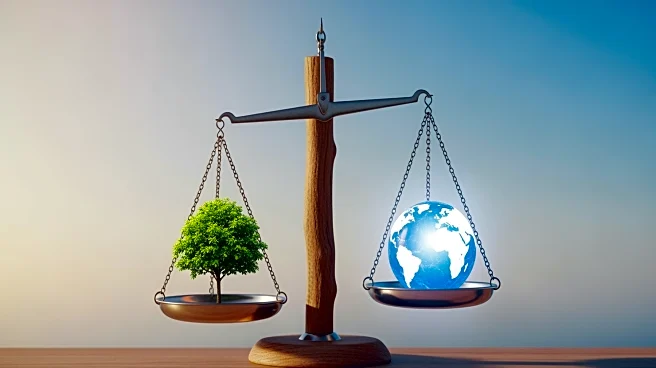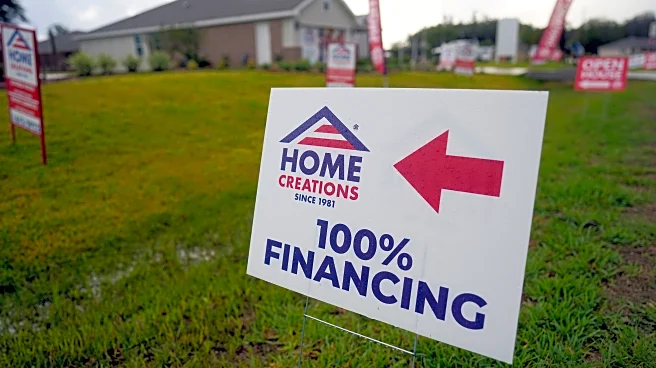What's Happening?
The United Nations Climate Change Conference (COP30) in Brazil is focusing on a comprehensive approach to climate governance, emphasizing a 'Just Transition' that extends beyond energy to encompass societal
transformation. COP President André Corrêa do Lago highlighted the need for a shift from systems of patriarchy, colonialism, and extractivism to more equitable and sustainable practices. The conference aims to foster a multilateral approach that includes diverse voices, particularly from the global south, to ensure a fair transition that does not leave anyone behind. This initiative is part of a broader effort to redefine climate governance as more participatory and supportive.
Why It's Important?
The emphasis on a Just Transition at COP30 is significant as it seeks to address systemic inequalities in climate governance. By advocating for a holistic approach, the conference aims to ensure that the transition to a carbon-free economy is equitable and inclusive. This could lead to more sustainable practices globally, impacting industries reliant on fossil fuels and promoting renewable energy. The focus on multilateralism and inclusion of indigenous wisdom could reshape international relations and resource management, potentially benefiting developing countries by ensuring fair compensation and ethical practices.
What's Next?
The outcomes of COP30 could influence future climate policies and international agreements. Stakeholders, including governments and NGOs, are expected to continue advocating for the principles discussed at the conference. The concept of 'Mutirão,' a continuous mobilization method, may guide future climate actions, promoting collaboration and active listening. The success of these initiatives could depend on the commitment of participating countries to implement the agreed-upon changes and the ability to maintain momentum beyond the conference.
Beyond the Headlines
The discussions at COP30 highlight the ethical dimensions of climate governance, particularly the need to address historical injustices and power imbalances. The call for a Just Transition reflects a growing recognition of the interconnectedness of social, economic, and environmental issues. This approach could lead to long-term shifts in how societies prioritize sustainability and equity, potentially influencing cultural attitudes towards consumption and resource use.










